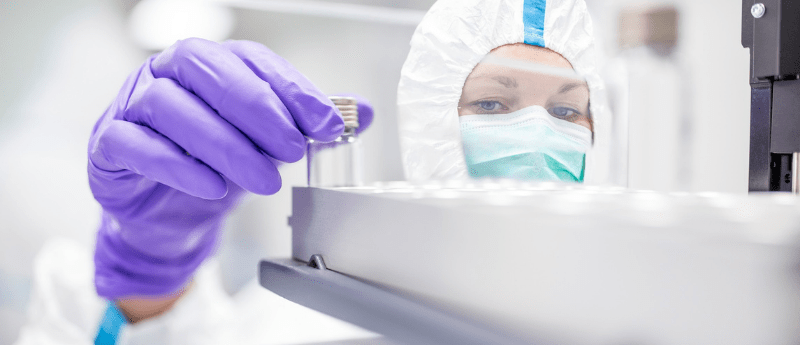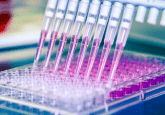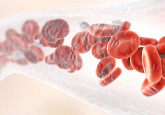Top 5 grants in regenerative medicine: May 2021

This month’s top grants in regenerative medicine, sourced from Dimensions, includes projects on: using light- and synthetic biology-driven volumetric printing of functional human tissues; attaining neuronal functional regeneration after spinal cord injury by using a bio-hybrid-compatible electro-activated and wireless-rechargeable implantable technology; generating artificial organs and tissues from stem cells; developing miniaturized human bone organs in mice that can be used as advanced models of healthy and malignant human hematopoiesis; and generating engineered bio-inks for 3D printing of complex, perfusable structures.
Check out this month’s top grants in regenerative medicine:
- ENLIGHT: light- and synthetic biology-driven volumetric bioprinting of functional human tissues
- RISEUP: Regeneration of Injured Spinal cord by Electro pUlsed bio-hybrid imPlant
- Generating artificial organs and tissues from stem cells
- Bioengineering of human ossicles as advanced in vivo hematopoietic models
- Novel, engineered bio-inks for 3D printing of complex, perfusable structures
ENLIGHT: light- and synthetic biology-driven volumetric bioprinting of functional human tissues
This project aims to merge synthetic biology, 3D printing and photonics to develop a new technological concept termed ‘optogenetic volumetric bioprinting’. By using visible light tomography, this ultra-fast technique will sculpt cells and biomaterials into multi-material, high-resolution, centimeter-scale living tissues within less than a minute. Through the use of synthetic biology-inspired strategies, it is reported that stem cells can gain the ability to sense and respond to light patterns provided by the printer and differentiate into selected cell types.
In the longer term, it is anticipated that ENLIGHT will hopefully offer new tools to solve donor organ shortage for transplantation and regenerative medicine.
Funding amount: $USD4.4 million
Funding period: 1 May 2021–30 April 2025
Funder: European Commission
Research organizations: ETH Zurich (Switzerland), University Medical Center Utrecht (The Netherlands), Swiss Federal Institute of Technology (Lausanne, Switzerland), University of Naples Federico II (Italy), AztraZeneca (Sweden)
RISEUP: Regeneration of Injured Spinal cord by Electro pUlsed bio-hybrid imPlant
In this research proposal, the team hope to attain neuronal functional regeneration after spinal cord injury by using a unique bio-hybrid-compatible electro-activated and wireless-rechargeable implantable technology. RISEUP introduces high voltage micropulse stimulations and low amplitude direct currents on a combination of stem cells (induced neural stem cells and multipotent stromal cells), whose transplantation is facilitated by an innovative scaffold biomaterial.
The concept behind RISEUP is that micropulses, being able to impose and control cytosolic calcium oscillations, will facilitate cell maturation, survival and neurotrophic factors secretion. The long-term vision of RISEUP is the radical change in spinal cord injury treatment modality to assure the cure delivery without any machinery connection, dramatically improving patients’ quality of life.
Funding amount: $USD3.7 million
Funding period: 1 May 2021–31 October 2024
Funder: European Commission
Research organizations: Sapienza University of Rome (Italy), French National Center for Scientific Research (France), Polytechnic University of Valencia (Spain), Principe Felipe Research Center (Spain), Italian National Agency for New Technologies, Energy and Sustainable Economic Development (Italy)
Generating artificial organs and tissues from stem cells
In this project, the researchers plan to bring their quantitative understanding of force-controlled cell functions to a new level by a challenging and novel photomechanical cell-stimulation approach. It will combine new materials containing photoswitchable molecules with a complex optical system employing intense laser light pulses.
The team hypothesize that cell functions, such as adhesion, migration and differentiation, have a huge systematic dependency on frequency, duration, history and intensity of the force stimuli. The method being proposed would apply forces to cells solely via light and would not require genetic modifications.
Funding amount: $USD3.0 million
Funding period: 1 May 2021–30 April 2026
Funder: European Research Council
Research organization: Heidelberg University (Germany)
Bioengineering of human ossicles as advanced in vivo hematopoietic models
This project (hOssicle) aims to develop miniaturized human bone organs in mice that will be used as advanced models of healthy and malignant human hematopoiesis. hOssicle will offer unprecendented custom engineering of human bones to understand the functional organization of its hematopoietic compartment. By genetic reprogramming of mesenchymal lines, the team will control the molecular and cellular composition of the ossicles and study the corresponding impact on hematopoietic development.
Additionally, the team envision the engineering of patient-specific ossicles with mesenchymal and leukemic blood cells from the same individual towards recapitulation of the disease setting. This will be a significant breakthrough, by offering the study of malignancy progression and drug-testing in a personalized in vivo context for cancer remission.
Funding amount: $USD1.8 million
Funding period: 1 May 2021–30 April 2026
Funder: European Research Council
Research organization: Lund University (Sweden)
Novel, engineered bio-inks for 3D printing of complex, perfusable structures
To achieve the next generation of printed tissue, this project aims to develop a family of biomaterials that enable a new biofabrication strategy termed ‘Gelation of Uniform Interfacial Diffusant in Embedded 3D Printing’ (GUIDE-3DP). The GUIDE-3DP materials will allow rapid fabrication of perfusable networks of interconnected channels with precise control over their shapes and sizes.
The researchers believe that these biomaterials will enable the future fabrication of living tissue mimics for a variety of applications that advance and further position the USA to have a global leadership in the emerging field of biomanufacturing.
Funding amount: $USD501,000
Funding period: 1 May 2021–30 April 2024
Funder: Directorate for Mathematical & Physical Sciences (NSF MPS)
Research organization: Stanford University (CA, USA)
Brought to you with support from:






